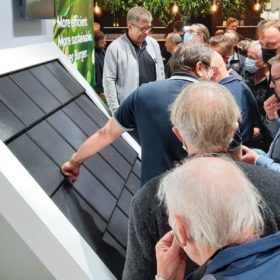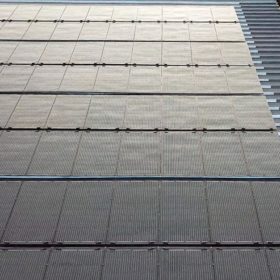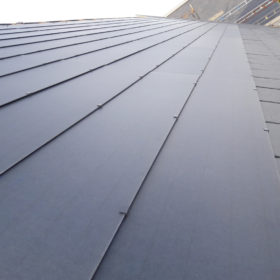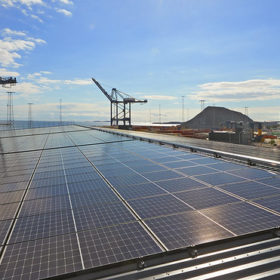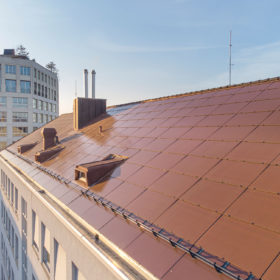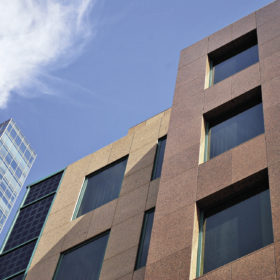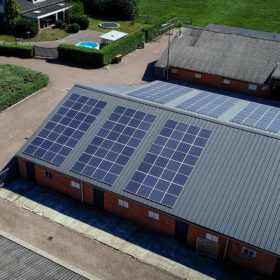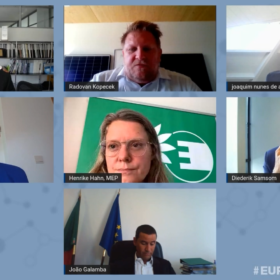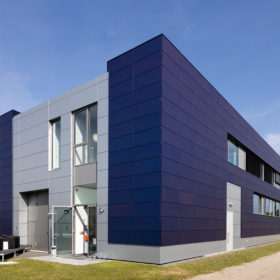Meyer Burger unveils new solar tiles
Meyer Burger plans to start selling a new building-integrated PV product from 2022. It says the solar tiles have a high energy yield, with simplified installation and the ability to also provide heating. German engineering company paXos designed the tiles.
CIGS solar panels for weight-constrained rooftops
U.S. thin-film module manufacturer Sunflare is ramping up production at its factory in China. The company makes four different CIGS modules.
Solar tile with 14.2% efficiency from Denmark
Dansk Solenergi ApS has developed a 13.6 kg tile that can be used for both new buildings and building renovation. The device is currently being produced in Denmark, where the company operates a 40 MW line.
Red BIPV solar module from Italy
The module is available with wattages of 230-245 W and can reach an efficiency of up to 13.45%. The panel is part of a new series of colored products that includes silver and orange modules.
Swedish port offers glimpse of eco-building future with all structures rooftop solar ready
A 605 kW array installed on the roof of the port’s largest building helps prove the claim made by Stockholm Norvik that all of its structures are able to host rooftop solar.
Invisible BIPV system covers building in Zurich’s city center
The BIPV installation was developed with monocrystalline solar tiles provided by Swiss manufacturer 3S Solar Plus. The product is available in different gradations of green, blue, terracotta and brown and has a power output ranging from 80 to 170 W, depending on color and size.
The weekend read: Bridging the BIPV gap
Architects and construction companies are being offered an ever-growing array of Building Integrated Photovoltaics (BIPV) products, with their needs for safety, speed of construction, and aesthetics in mind. But can it drag BIPV beyond niche status?
Dutch construction company invests in 300 MW solar module factory
The factory is under development in Eindhoven by Dutch start-up Solarge, and is scheduled to begin manufacturing activities in March.
EUPVSEC 2021 – Key takeaways
Now in its 38th year, and its second as a fully virtual event, the 2021 EU PVSEC conference revealed a solar industry and research community filled with confidence. Discussions at the event began with the expectation that demand for solar will continue to grow rapidly, and focused on the challenges of further scaling up production and deployment, and ensuring that energy systems can run smoothly with solar and wind as their main source of energy.
Solar facade with frameless design
The frameless design of the 50 kW facade was made possible by a concealed suspension technology that, according to its creators, eliminates the need for additional edging at the edge of the module. The installation was built with 135 W CIGS solar modules.
